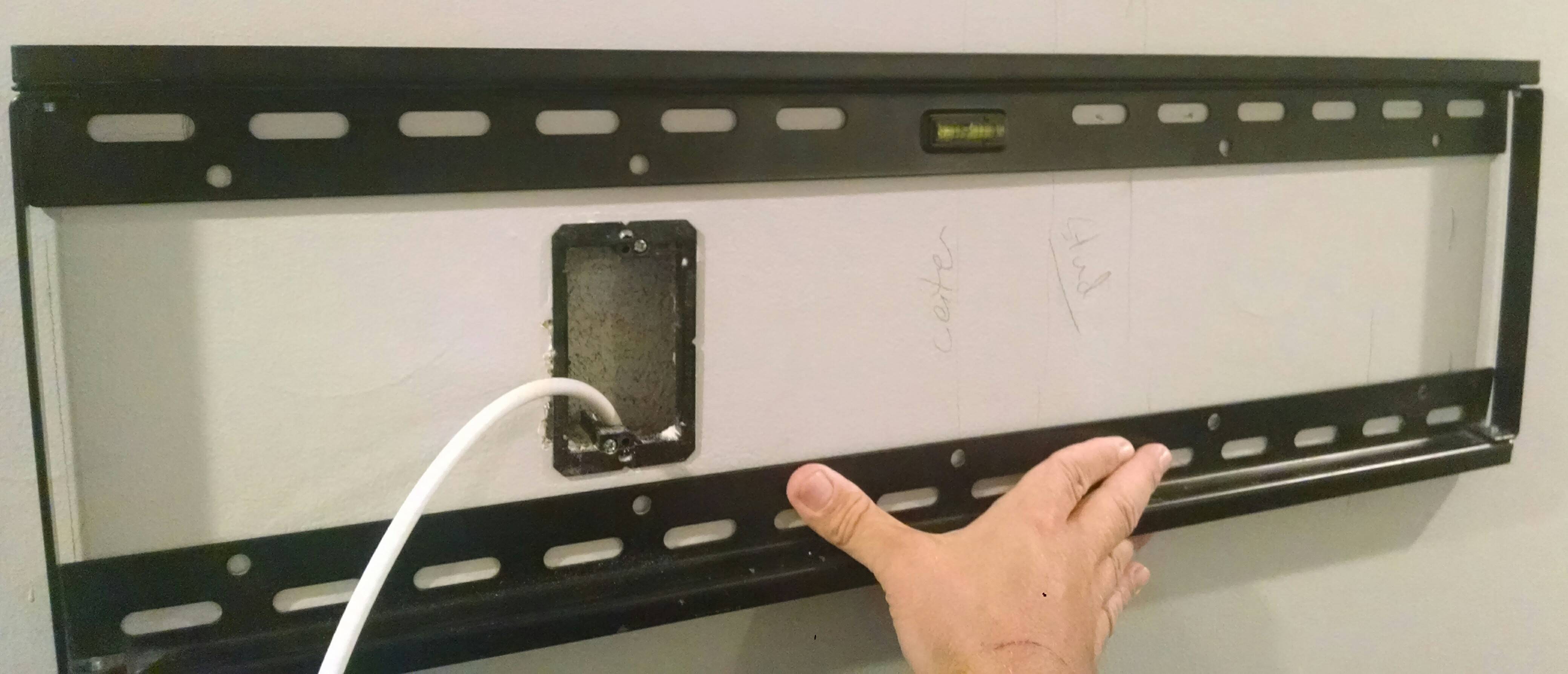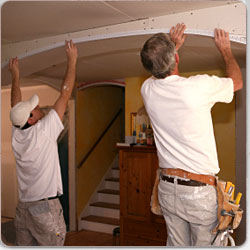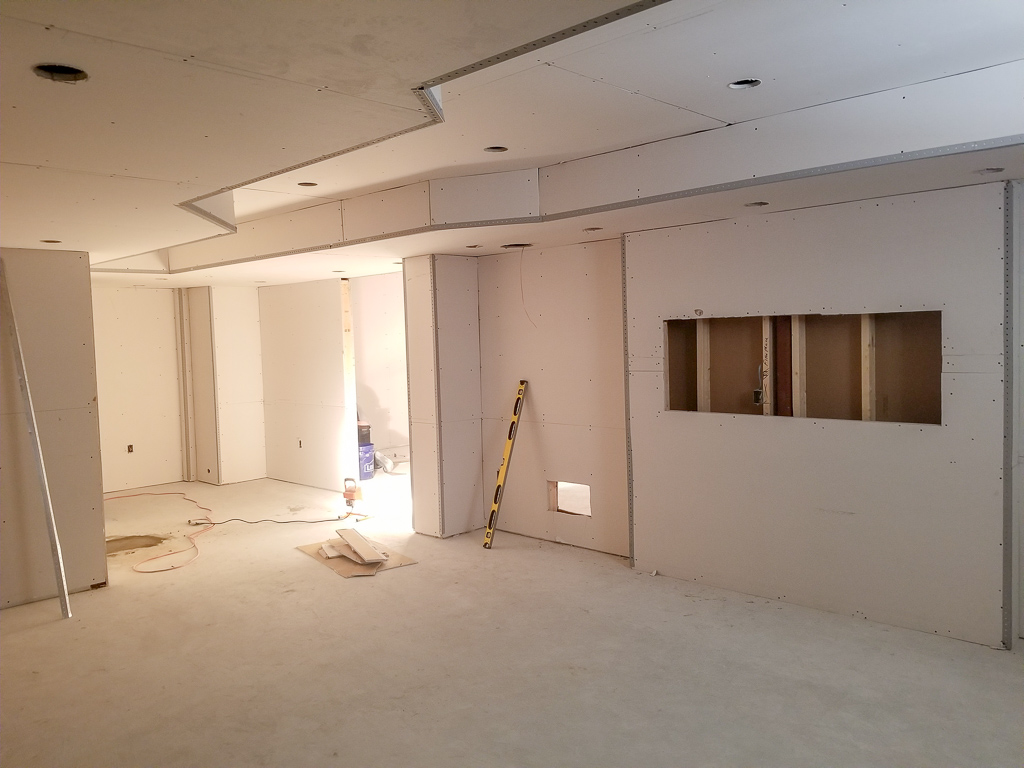
You should look into the Flex sander if you're looking for a sander with a great reputation. This device is a great choice for small projects, especially if you are in a tight spot. There are many options available so you can choose the best one for your needs.
The Flex sander features a telescopic mechanism that allows the handle to spin around a 360-degree arc. It's lightweight and easy-to-use. It is powerful enough for larger areas of sanding and can also pick up dust. The vacuum has some disadvantages. It's not as durable and you'll need to change the brushes.
Flex sanders are adjustable which makes them ideal for different heights. You can also get a variety of sanding heads for different jobs. You can have a round head to cover larger areas and a triangular head to work in corners. While the Flex sander doesn't have a brush skirt, you can still attach it to a Flex safety vacuum. The Flex sander comes with a bag.

Another feature of the Flex sander is the fact that it is very quiet. When compared to other belt sanders, the Flex sander has a low noise output. In addition, the Flex sander features a vacuum-shaped tube that keeps the debris from entering the air. These features are particularly useful for patching plaster joints or sanding drywall joints.
Other than the unique sanding features, Flex sanders also have a unique balanced concept. It weighs about half as much as previous models so that you don't feel any pressure on your hands and arms while you sand. You will also be more likely to use this sander due to its ease of maneuverability.
The Flex sander has another unique feature: it can be used to sand drywall and attached to a Flex mobile workspace. This means you can move it to different locations in the job site and then hold it to the ceiling or wall with ease. As an added bonus, the Flex sander can be used with a Flex safety vacuum, which means you won't have to worry about leaving any dust behind.
While the Flex sander might not be the cheapest on the market it is definitely worth the price. If you are looking for a great sander that will last for many years, you will be hard pressed to find a better option.

The flex Sander allows you to sand your walls with a comfortable spade-shaped tool. The sanding pad is made of a material that is designed to last, and the backing pads are pre-loaded with Velcro abrasive sandpaper. The dustproof switch in the device lets you sand without snagging drywall or other surfaces.
For the best results, it is essential to choose the right sanding equipment for your particular project. Also, it is essential to have an idea of the type of sanding you plan on doing. This will help you choose the best sander for your project.
FAQ
Do you prefer to do walls or floors first?
The best way of starting any project is to determine what you want. It's important to think about how you are going to use the space, who will use it and why they need it. This will help determine if flooring or wall coverings are best.
You may want to lay flooring before you create an open-plan kitchen/living space. You could also consider wall coverings for privacy if this is the space you are looking to create.
What should I fix first when renovating a house?
Cleaning out clutter inside and out is the first step to fixing up a house. Next, remove moldy spots, replace damaged walls, fix leaky pipes, and paint the whole interior. You will need to clean up the exterior and paint.
Is it possible to live in a house that is being renovated?
Yes, I can live in my house while renovating it.
You can live in a house that is being renovated while you are renovating it. The duration of the construction works will affect the answer. If the renovation takes less time than two months, then no, you can still live in your home during construction. However, if the renovation project lasts longer than two months, then no, you cannot live in your home while the renovation is taking place.
You should not live in your house while there is a major building project underway. This is because you could be injured or even killed by falling objects on the construction site. The heavy machinery and noise pollution at the job site can also cause dust and noise pollution.
This is particularly true if you live on a multi-story home. In such cases, vibrations and noises from construction workers may cause irreparable damage to your property.
As we mentioned, temporary housing will be necessary while your home is being renovated. This means you won't be able to use all the amenities in your own home.
You won't be allowed to use your dryer or washing machine while they are being repaired. The workers will make loud banging noises, paint fumes, and chemicals obstruct your ability to use your dryer and washing machine.
All these factors can lead to stress and anxiety among you and your family members. You should plan ahead to avoid feeling overwhelmed by this situation.
Research is key when you are considering renovating your home. It will save you money and help you avoid costly mistakes.
Also, it is a good idea to get professional help from a reputable contractor in order for everything to go smoothly.
How much does it take to renovate a home?
Renovations are usually between $5,000 and $50,000. Renovations typically cost homeowners between $10,000 and $20,000
Do you prefer to hire a general contractor, or a subcontractor for your project?
Hiring a general contract is typically more costly than hiring subcontractors. A general contractor often has many workers, which means they can charge their clients more for labor. On the other hand, a subcontractor only hires one employee, so he or she charges less per hour.
What should I consider when buying a new home?
You need to ensure you have enough funds available to cover closing costs before you buy a home. Refinancing your loan is an option if cash is tight.
Can I do the whole renovation myself?
You can do it yourself so why pay someone when you could save time and money?
No matter how much DIY you love, there will be times when it is impossible to do it yourself. You may not be able to control all the variables.
You might discover that the wiring in your home is not up to date. In this case, you'll need to hire an electrician to ensure that your electrical system works safely and reliably.
You also need to consider the fact that you might not be able to handle any kind of structural damage that might occur during the renovation process.
You may not have the proper tools to complete the job. For example, if your goal is to install a new sink in your kitchen, you will need to purchase a plumber’s snake, which is designed to clear blocked pipes.
There are plumbing codes that will require you to hire a licensed plumber for your project.
It is important to understand your capabilities before embarking on such a large task.
If you are unsure if it is possible to do the job on your own, ask friends or family members who have worked on similar projects.
They can give you advice on what steps you need to take and where you can go to learn more about the subject.
Statistics
- Design-builders may ask for a down payment of up to 25% or 33% of the job cost, says the NARI. (kiplinger.com)
- ‘The potential added value of a loft conversion, which could create an extra bedroom and ensuite, could be as much as 20 per cent and 15 per cent for a garage conversion.' (realhomes.com)
- It is advisable, however, to have a contingency of 10–20 per cent to allow for the unexpected expenses that can arise when renovating older homes. (realhomes.com)
- According to the National Association of the Remodeling Industry's 2019 remodeling impact report , realtors estimate that homeowners can recover 59% of the cost of a complete kitchen renovation if they sell their home. (bhg.com)
- The average fixed rate for a home-equity loan was recently 5.27%, and the average variable rate for a HELOC was 5.49%, according to Bankrate.com. (kiplinger.com)
External Links
How To
How do you renovate an old house?
First, you need to decide what kind of renovation you want. This could be as simple as updating your kitchen equipment or completely renovating your entire home.
After you've determined the type of renovation you want, you should consider how much money you can spend. You might find that you don't actually have enough funds to cover the full cost of the entire project. This is a sign that you may not have enough funds to cover the entire cost of the project.
There are many things to remember before you begin work if you have decided to do renovations. The first thing to do is ensure you get the necessary permits. You might also need to check whether you need planning permission for certain types or work. For example, if you plan to add extensions to your home, you might need to apply for building consent.
Before you start working on the house, it's always best to check the local council website to see if they require any additional permits. It is also important to check whether planning permission is required for every part of the house you are renovating. If you plan to do major renovations, such as replacing a roof, it is advisable to consult your insurance provider to ensure that you have sufficient coverage.
Next is choosing the right tools for the job. There are many options so make sure you take your time and research each one thoroughly. Some of the most common items that people use during their renovation projects include paint, wallpaper paste, flooring, tiles, carpets, insulation, fencing, doors, windows, lighting, plumbing, heating systems, electrical wiring, plasterboard, timber, concrete, bricks, tiling, mirrors, sinks, taps, toilets, washing machines, ovens, refrigerators, microwaves, dishwashers, vacuum cleaners, carpet cleaning equipment, air conditioning units, fireplaces, chimneys, and even garden furniture!
Be sure to consider the product's quality when choosing these products. Cheap products tend to last only a short period of time, whereas good quality products will usually last longer and provide better value for money. You should only buy what you need when purchasing anything. It is important not to buy too much, as you may end up wasting valuable resources or having to throw out large quantities of material. Instead, try to purchase exactly what you need.
After choosing the right materials for the job you should decide where to keep them while you're renovating the property. Renting storage space might be necessary if you plan on renovating a large part of your home. This will allow you to store all your supplies until you have them ready to go. You could also ask your family or friends for help moving the items.